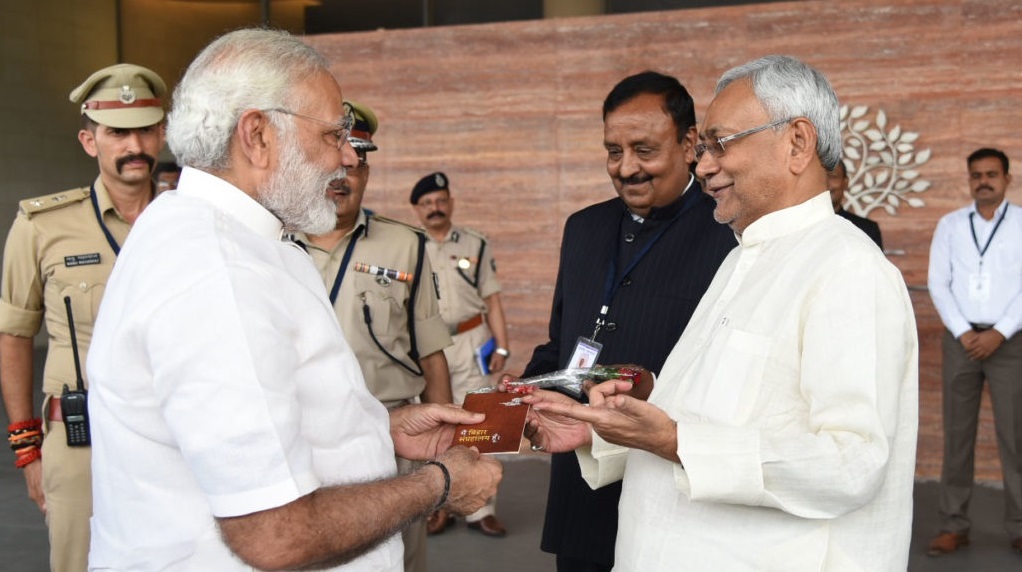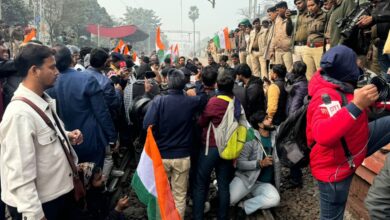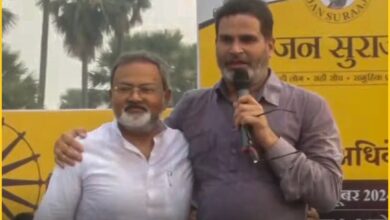In Bihar, Nitish Kumar has the office, BJP has the power
BJP has never been in a position to claim the chief minister’s chair despite having one of the highest numbers of legislators

By Ashraf Nehal
The recent floor test in the Bihar Assembly has laid bare the intricate web of power dynamics and shifting alliances that govern the state’s political landscape. Nitish Kumar’s National Democratic Alliance (NDA) government secured a slender majority of 129 MLAs, a feat made possible by an unexpected turn of events that saw three legislators from the opposition Rashtriya Janata Dal (RJD) — Prahlad Yadav, Nilam Devi, and Chetan Anand — cross the floor to support the government. This move, a stark departure from their party’s stance, has unravelled the strategic calculations that drive political decision-making in Bihar, where the pursuit of power, caste considerations, and the looming 2024 Lok Sabha elections hold sway.
The defection of Nilam Devi and Chetan Anand, both hailing from prominent Bahubali (strongman) families with deep-rooted political legacies, marked a shift in the power balance. Their decision to abandon the RJD, a party for which they had long been trusted sepoys, exposed the growing influence of caste-based politics and the increasing significance of Rajput identity in the face of the BJP’s ascendancy and the caste census. The erstwhile Socialists had sought to forge a social coalition of Yadavs, Kurmis, Muslims — and to an extent Rajputs — communities that shared similar social status, in an attempt to counter the dominance of the Congress before the rise of Mandal and Mandir politics. However, this Mandal and Mandir version of politics had taken on a “Dahi-Chuda” dynamic in Bihar, where Dahi represented the Yadavs and Chuda the Rajputs.
Since the Muslim electorate’s voting patterns have primarily been driven by the objective of defeating BJP candidates rather than personal economic advancement, RJD and JDU recognised the need to tangibly empower the Yadav, Kurmi, and Rajput communities to solidify their base. As the Yadav and Kurmi vote banks were already firmly aligned with the RJD and JDU, the focus shifted towards mobilising the Rajput and upper caste vote. In this context, Nitish Kumar appeared to have played his trump card by securing the support of Nilam Devi and Chetan Anand. With the 2024 Lok Sabha elections rapidly approaching, there was limited time available to groom a new leader who could command the necessary stature and influence within the community.
While Nitish Kumar had Dalit leaders like Chirag Paswan and Jitan Ram Manjhi in his camp, the accommodation of Bahubalis like Anand Mohan, who was convicted for the 1994 murder of Dalit IAS officer G Krishnaiah, posed little threat to the loss of Dalit votes. However, in the rapidly evolving political environment of Bihar, the Rajput factor alone would not shape the future course of action. After the Lok Sabha elections, significant realignments and power-sharing negotiations could be expected, as the dynamics of coalition politics continue to evolve.
The BJP has never been in a position to claim the chief minister’s chair despite having one of the highest numbers of legislators and they have seldom benefited from their alliance in the state. But without the BJP’s support, both Jitan Ram Manjhi and Upendra Kushwaha would have been politically marginalised, and the JDU would have struggled to maintain its relevance in the wake of the Modi wave.
The BJP, however, sees little to gain from its alliance in Bihar, which has pushed the party to demand a greater stake in the state’s political landscape. By engineering defections of JDU legislators in Arunachal Pradesh and Manipur, splitting the LJP into rival factions, and replacing Nitish Kumar’s trusted ally Sushil Kumar Modi with faces like Tarkishore Prasad and Samrat Chaudhary, the BJP has made it clear that its supremacy must be acknowledged. Moreover, the BJP has been wary of Chirag Paswan’s spoiler role, which created challenges for Nitish Kumar, and was displeased with Kumar’s decision to embrace the sole LJP MLA in the last assembly elections. To assert its dominance and control the narrative, the BJP must look inward and rely less on the alliance, as both the RJD and BJP have learned the perils of side-changing politics.
Notably, senior leaders like Upendra Kushwaha, Pashupati Paras, Jitan Ram Manjhi, and Chirag Paswan are all vying to prove their proximity to the BJP alongside Nitish Kumar, in a bid to maintain their political relevance. Most of these leaders share the same vote bank — Kurmi and Dalit — and are eyeing upper-caste mobilisation by allying with the BJP, setting the stage for future complications within the alliance. None of these leadership figures can settle for anything less than what fits their political ambitions. Furthermore, when Nitish Kumar joined the Mahagathbandhan (Grand Alliance), both Upendra Kushwaha and Jitan Ram Manjhi were in his camp, but the growing influence of Tejashwi Yadav and his potential succession to the throne of Bihar led them to desert Kumar and join the NDA. If the political nexus is not carefully maintained, it would not be surprising to see them change allegiances again, considering their history of shifting loyalties and the primacy of personal ambition over ideology.
One of the most significant challenges that Bihar politics has faced in the aftermath of the 2020 elections is the role of smaller parties, which pendulum between alliances and become both a challenge and an opportunity for each camp. Consequently, both the NDA and Mahagathbandhan have tried to diminish the influence of these smaller parties. The way MLAs from VIP, BSP, AIMIM, and LJP were absorbed by the primary parties in Bihar, and the last survivor, Jitan Ram Manjhi, who has consistently posed a threat to each of his alliances, makes it clear that none of the major players are willing to entertain these smaller entities further. Hence, in a newer political setup, Bihar would want a direct contest between the two dominant forces, rather than an indirect one, characterised by shifting loyalties and the constant threat of defections. The larger parties seek to consolidate their power and eliminate the influence of smaller players, as they grow increasingly disillusioned with the complexities of coalition politics and the instability it breeds.
(Source: The Indian Express, The writer is a South Asia researcher based out of London)




